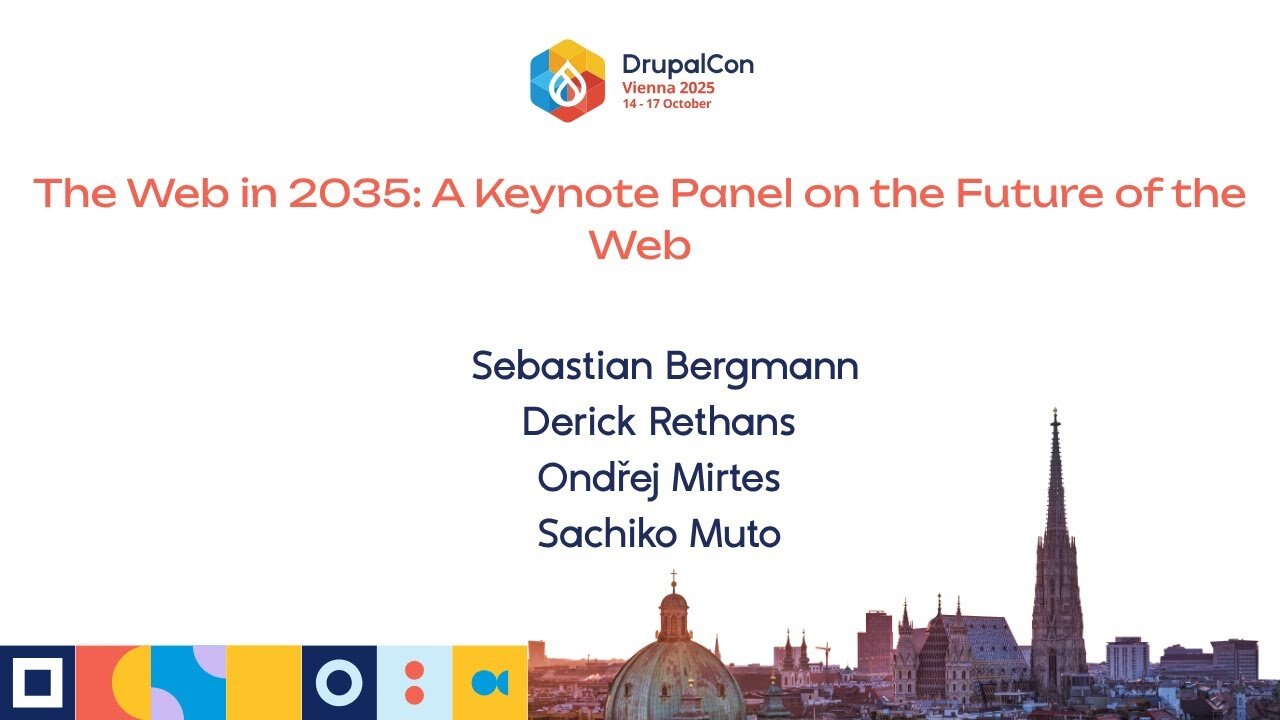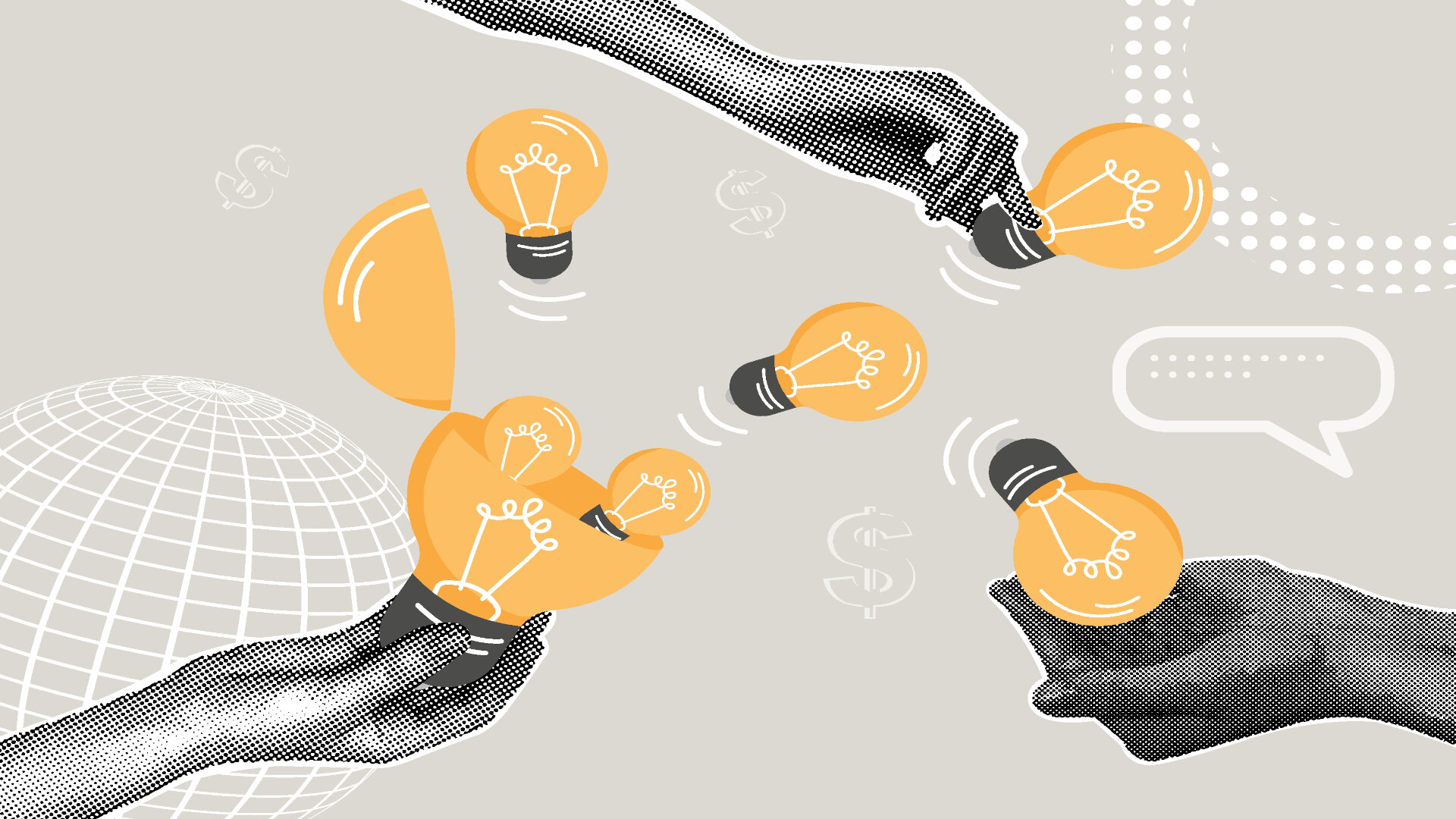
Last week at DrupalCon Europe, I had the opportunity to participate in a keynote panel on the future of the web and Open Source. In this article, I would like to elaborate on and record my contributions to the discussion on the topics of digital sovereignty, standards, ethics, and the long-term development of Open Source.
Open Source as the foundation of digital sovereignty
Question: Open Source has been a driving force in web development. How do you envision its role evolving by 2035, especially concerning innovation, collaboration, and digital sovereignty?
Open Source has always been a driver of innovation and collaboration on the web, and will become even more important in the future. We will see more initiatives like the Sovereign Tech Fund from Germany's Sovereign Tech Agency, which specifically support critical digital infrastructure. It will be crucial for organisations to increasingly recognise that open source is not free, but requires investment in maintenance, security, and governance.
Europe is currently recognising that dependence on proprietary systems from large technology providers poses strategic risks. Open Source offers a basis for technological independence without isolating oneself from the world. Similar to PHP, which has evolved from simple CGI scripts to a business-critical infrastructure that now powers 75% of all websites, the Open Source movement is also becoming more professional. Better governance structures, clear responsibilities, and sustainable ways of involving new contributors will determine progress in this area.
Standards as drivers for openness and security
Question: Standards play a crucial role in ensuring interoperability and accessibility on the web. How might the development and implementation of web standards change by 2035, and what impact could this have on developers and users?
Standards guarantee interoperability and accessibility on the web. I hope that the focus in the development of web standards will continue to be on avoiding lock-in and on genuine openness. Data protection and security should be an integral part of these standards from the outset, rather than just an afterthought.
The EU's efforts towards digital sovereignty will promote this change. Just as type checking and automated testing have become established in modern PHP development, tools for checking standard compliance will also become a natural part of the development process. As a result, standards will no longer be perceived as an obstacle, but as a quality feature for sustainable software development.
Ethics and responsibility in digital spaces
Question: As web technologies become more integrated into daily life, what ethical considerations should developers and organizations prioritize to ensure trust and fairness in digital spaces?
As a member of the German Informatics Society (GI) and the Chaos Computer Club (CCC), I feel a sense of responsibility both professionally and ethically. In this context, I would like to refer to the ethical guidelines published by the GI and the hacker ethics formulated by the CCC. For me, both codes form a binding framework for responsible, transparent, and public-interest-oriented action in the digital world.
As digital technologies increasingly permeate all areas of life, developers and organisations must take responsibility. Systems should be open to scrutiny and accountable, in line with the Open Source philosophy. Closed "black box" systems undermine trust and create liability risks.
The success of the PHP community is based on global collaboration. To ensure that this remains possible in the future, we must break down technical, economic, and social barriers in our digital spaces. My 25 years of experience as a maintainer of PHPUnit have shown me that sustainable software requires a long-term perspective: continuous maintenance, security updates, and community support. People should have control over their data and genuine choice when it comes to digital services. Digital sovereignty means retaining control, not isolating oneself, but acting in a self-determined manner.
A bold prediction
Question: Any bold predictions for the web in 2035?
I am convinced that Open Source will be the standard for critical digital services. Financing models such as that of The PHP Foundation will set a precedent. Proprietary lock-ins for essential systems will be considered an unacceptable risk. Organisations will consciously prefer solutions that they can test, modify, and control themselves, rather than relying on external platforms.
Ideally, central digital services would be operated by user or organisational cooperatives rather than profit-oriented corporations. This is certainly difficult to implement in a market economy, but that should not deter us from striving for it. Digital progress must always preserve the freedom to participate: Open Source is and remains the key to this.
Here is a video recording of the keynote panel:

Finally, I would like to express my sincere thanks to my fellow panellists Sachiko Muto, Ondřej Mirtes and Derick Rethans, as well as our moderator Aikaterine Tsiboukas, for the stimulating and enriching discussion.



